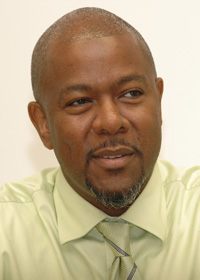
Photo by Phil Farnsworth
Cecil Adderley
Position
Chair
Affiliated Departments
Telephone
617-747-2426
For media inquiries, please contact Media Relations
Career Highlights
- Publications in the Journal of Research in Music Education, Choral Journal, Contributions to Music Education, Journal of Band Research, Southeastern Journal of Music Education, Strategies for Teaching: Technology, Visions of Research in Music Education
- Contributing author to the book Musical Experience in Our Lives: Expanding the Boundaries of Music Education
Awards
- Academic Achievement Award, Western Carolina University Alumni Association
Education
-
School NameUniversity of South Carolina-ColumbiaState or ProvinceSouth CarolinaDegreeDoctor of Philosophy (PhD)Field of StudyMusic Education
-
School NameUniversity of North Carolina at GreensboroState or ProvinceNorth CarolinaDegreeMaster of Music (MM)
-
School NameWestern Carolina UniversityState or ProvinceNorth CarolinaDegreeBachelor of Science (BS)
In Their Own Words
